We Still Say Grace
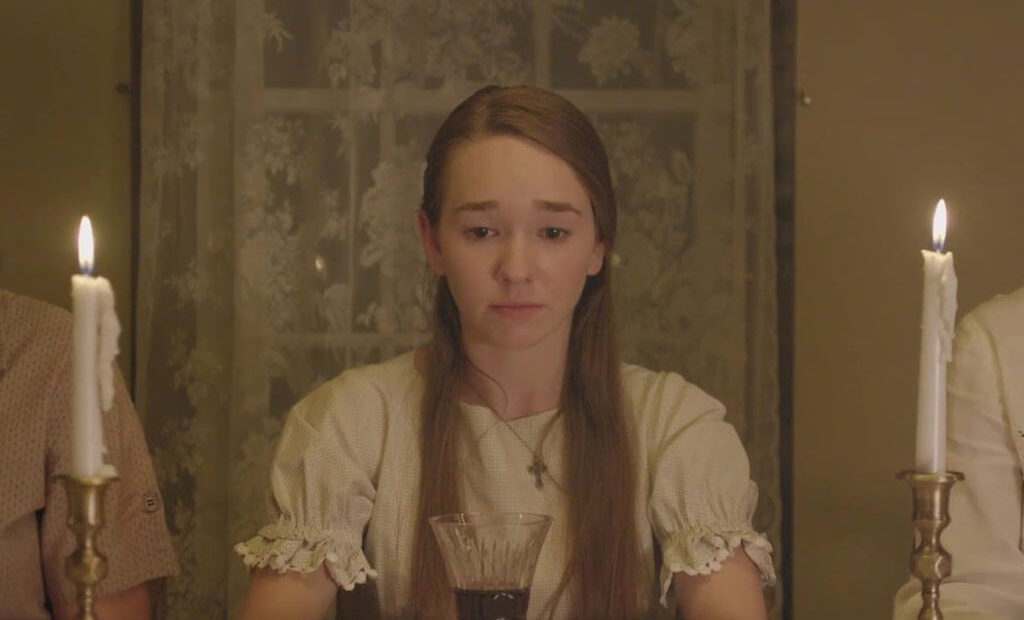
In the remote countryside of middle America, a zealous Christian family spend their days farming, growing vegetables and devoting their lives to the strict following of Jesus, totally isolated from the modern world. The opening scene shows the father Harold (Bruce Davison) making his wife and two daughters drink wine that has been poisoned; it transpires that the wine isn’t poisoned and is a test to ensure that the women are willing to give their lives in the name of God. Maggie (Holly Taylor), the youngest of the two daughters, does not share her sister Sarah’s (Rita Volk) devotion, longing to live a life of her own and go to college.
When three young men knock on their door asking for a phone after a road breakdown, their presence brings old secrets, emotions and tensions to the surface, making Maggie doubt everything her father has told her. Harold emerges as a far more sinister character than those he proclaims are “sinners”, and what ensues is a battle between life and religion, daughter and father.
This film accurately highlights the hypocrisy of the family’s piety, in a world where condemnation of others’ “sins” is quite often exacted by those committing some of the most heinous crimes in the name of God. It speaks to the conversation happening in Ireland in recent years, the Catholic church judging women for accessing safe abortion when it was the very institution responsible for subjecting single mothers to torture, slavery and abuse in the Magdalene Laundries. We Still Say Grace perfectly captures the pure anger and frustration of younger generations, forced to obey and listen to elders who conduct themselves at a much lower moral standard.
This is 90 minutes of pure insidious tension: from the moment the three boys arrive at the house, the audience is on the edge of their seats. Davison plays the domineering religious fanatic unsettlingly well, hiding the true nature of his evil with just enough on show to foreshadow what is to come. However, this is Taylor’s film. The lead actress never falls into the classic shrinking violet trope, but represents the frustration of youth at the hypocrisy of those they are expected to obey.
An unsettling and disturbing but fresh and original addition to the religious horror sub-genre.
Emma Kiely
We Still Say Grace is released digitally on demand on 5th May 2021.
Watch the trailer for We Still Say Grace here:

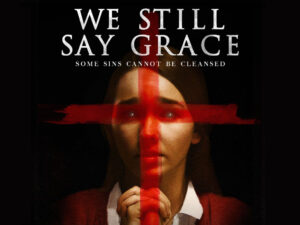

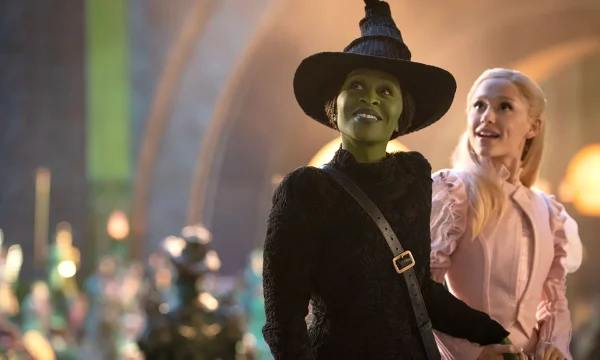
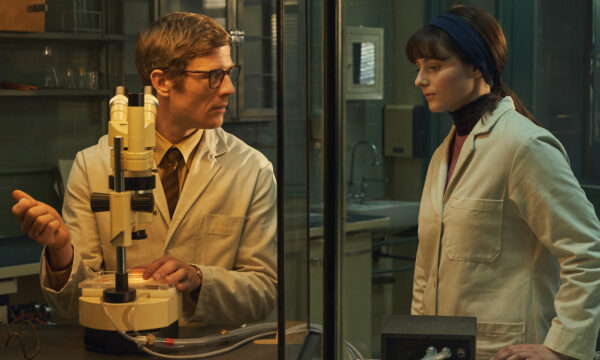
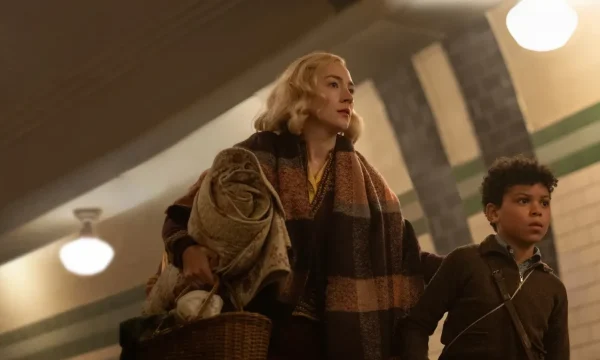
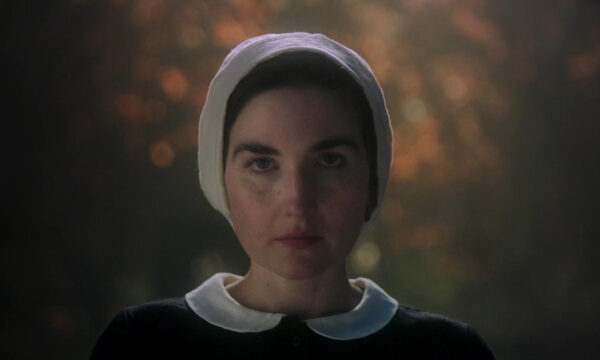

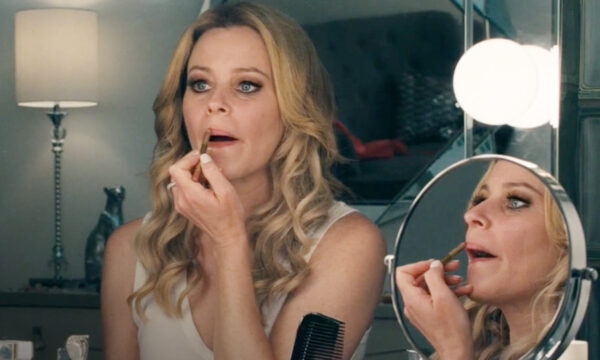
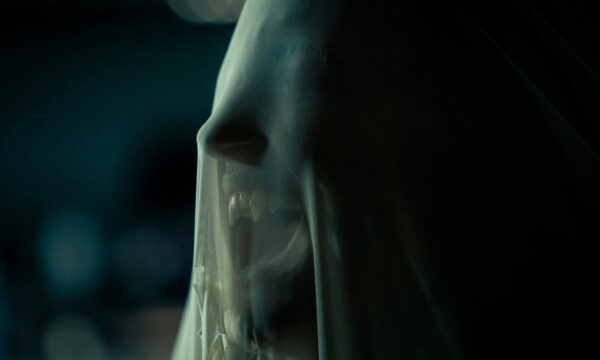











Facebook
Twitter
Instagram
YouTube
RSS